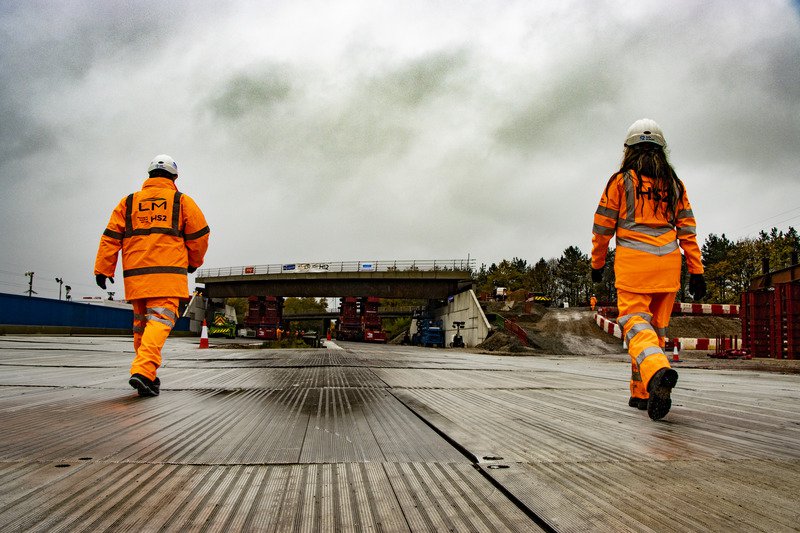
The West Midlands Combined Authority has today welcomed new HS2 figures showing how more than 6,800 people are now working on the construction of the high speed rail project in the West Midlands.
As well as laying track and building tunnels and bridges for the giant infrastructure project, they are also working on the construction of two new railway stations - at ‘Curzon Street’ in Birmingham city centre and ‘Interchange’ at Solihull, near to the airport and NEC.
The HS2 workforce also includes some 539 previously unemployed people and 344 apprentices from the West Midlands. Some of them have been trained on construction skills courses funded by the WMCA.
The project is also supporting many more jobs and businesses across the region through the supply chain. Cllr Ian Courts, the WMCA’s portfolio lead for environment, energy and HS2 and leader of Solihull Council, said:
"HS2 will transform transport in Birmingham and the West Midlands but it is about so much more than that. It is critical for our wider success as a region and has already attracted major inward investment creating jobs and growth far beyond the rail and construction sectors.
“These new figures from HS2 show how it is having a positive effect in helping thousands of people from our region into well-paid, skilled jobs and apprenticeships, as well as supporting many more thousands of jobs and businesses through the supply chain.
“I have spoken to some of the new recruits working on the Curzon Street and Interchange stations. It’s really heartening to hear how working on HS2 is having such a positive impact on their lives. The skills and experience they are gaining will set them up for a bright future in construction.”
The WMCA is also funding rail engineering training, through the Construction Gateway scheme at Wolverhampton College’s Wellington Road campus in Bilston. The facility, which has a 40 metre training track, is the first in the UK to offer training on slab track technology which is used in the construction of high-speed rail lines like HS2.
High speed rail is just one part of more than £12 billion of infrastructure investment taking place across the region, including new West Midlands Metro extensions and the regeneration of hundreds of acres of brownfield landfor new homes and commercial premises.
This is driving a construction boom in the West Midlands with an estimated 30,000 staff needed to work in the industry over the next five years. This has seen the WMCA support the region’s further education providers with construction training courses to give young people the skills needed to secure well-paid jobs in the sector.
The full range of benefits from HS2 to the region, including its positive impact on the local economy and contribution towards the #WM2041 net-zero carbon target are set out in the West Midlands HS2 Growth Strategy published last year.













Comments
Add a comment